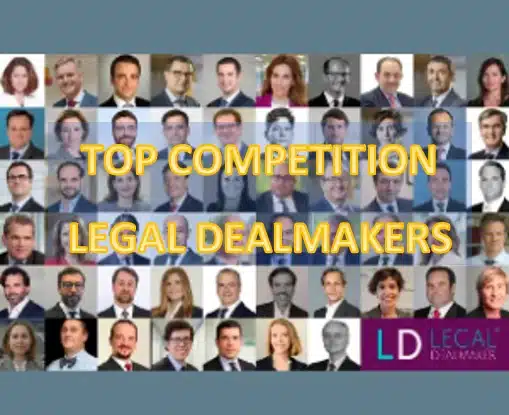By Álvaro Gómez and José María Mesa, lawyer and partner at Mariscal & Abogados
The rise of financial technology, technically known as Fintech – a term that combines the two Anglo-Saxon concepts of finance and technology – has rapidly transformed the global financial landscape. Technological innovations have spurred the development of new financial solutions, from payment applications and lending platforms to automated advice and cryptocurrencies, offering consumers and businesses new and flexible alternatives to traditional financial services that were previously almost exclusively provided by banks. However, this technological revolution has also raised important legal and technical issues that need to be properly addressed to ensure the safety, integrity and appropriate regulation of the fintech sector.
As this sector continues to evolve, it is necessary to establish a safe, stable and clear legal framework for providers and users of these digital financial products, which is also attractive to investors.
The starting point for the fintech sector was specifically the PSD1 (Payment Service Providers) Directive adopted in 2007, a first measure to regulate the emerging payment services sector in the European Economic Area. This common legal framework aimed to increase the security of transactions and allowed, for the first time, the participation of payment service providers independent of traditional banks.
Subsequently, a second directive (PSD2 Directive) was adopted in 2015, which led to the enactment of Royal Decree-Law 19/2018 on payment services and other urgent financial measures. This regulation was adopted with the aim of promoting transparency, competition and innovation in payment services in the financial sector and, as its main innovation, established that banks must allow duly authorised third party companies to access their customers’ accounts, at the customer’s request, in order to provide them with financial services.
In addition to the above-mentioned directives, other instruments have been added progressively to provide legal certainty for the new services of the fintech sector. For example, the regulation of financial credit institutions, electronic money institutions or even participatory financing platforms or PFPs, commonly known as crowdlending platforms, regulated by Law 5/2015 of 27 April on the promotion of business financing, among others, all of which demonstrate the continuous progress of this sector and the need for greater regulation in this area.
Most recently, Law 7/2020 on the digital transformation of the financial system stands out, which main objective is nothing less than the legal protection of users of financial products, giving rise to the so-called “regulatory or financial sandbox”. This innovative law strengthens the regulatory framework by creating a controlled test space for operators wishing to provisionally carry out an activity that would normally require prior authorisation from the competent authorities. In this regulated space, they are allowed to develop their fintech activity for a certain period of time without the main system being affected by the control mechanisms established in these regulations and supervised by the authorities.
The most recent development in the regulatory framework for the fintech sector is the approval of Law 28/2022 of 21 December on the promotion of the start-up ecosystem, known as the “Start-Ups Law”. Unlike the aforementioned laws, this regulation aims to encourage investment in the technological sector through measures such as improving the tax treatment of stock options to remunerate employees of fintech start-ups or reducing bureaucratic requirements for foreign investors.
As a result, there is no exclusive regulation for fintech companies in Spain due to the wide range of activities in the sector. Its constant evolution makes it extremely difficult to develop and consolidate an updated legal framework that is conducive to this innovation. Likewise, the growth of this sector brings with it a number of legal risks, such as regulatory risks, fraud, cybersecurity and, in particular, money laundering.
In addition, the current regulatory differences between traditional banks and fintechs can pose significant competitive challenges. While traditional banks are subject to a strict regulatory framework covering a wide range of areas, from risk management to liquidity ratios, corporate governance and even consumer protection, fintechs are often confronted with more lax regulations, where a single licence is basically required to operate as a financial services provider. This regulatory asymmetry can lead to an uneven playing field, with traditional banks facing higher regulatory hurdles than fintechs, which can have a negative impact on competition in the financial sector. It is, therefore crucial to tackle these regulatory differences in order to promote fair and equal competition in the financial sector and to create a level playing field for all firms, whether traditional or fintech.
Finally, regulators face a number of complex and evolving challenges arising from the rapid development and technological breakthroughs in the financial industry and the wide range of activities offered by the fintech sector. Regulation must address the challenges and risks associated with financial technology, such as consumer protection, cybersecurity, data protection and anti-money laundering while promoting innovation and competitiveness. Cooperation between the public and private sectors is, therefore key to the successful development of this sector.
José María holds a degree in Law and Business Administration from the Carlos III University of Madrid and is a member of the Madrid Bar Association (ICAM). In addition, he has taken courses on brand development for entrepreneurs (Branding for competitive advantage) at the University of Chicago and on business management and management skills (Basic Management Skills Certificate) at DePaul University in Chicago.
Before joining Mariscal & Abogados, he worked as a commercial lawyer at Gómez Acebo & Pombo and Amazon.es.
In 2015 he joined Mariscal & Abogados, where his main areas of practice are corporate law, mergers and acquisitions, commercial contracts and insolvency law. In April 2022, José María Mesa was appointed partner of the firm.
José María has written several articles related to his areas of expertise.
Álvaro holds a degree in Spanish-German Law from the University of Bayreuth. He also holds a Master’s degree in Corporate Law from Centro de Estudios Garrigues. After starting his professional career in the corporate department of a prestigious Spanish law firm, Álvaro joined the commercial department of Mariscal & Abogados in 2022, where his areas of practice are Corporate Law and Insolvency Law.
Miguel Mariscal‘s vision for founding Mariscal & Abogados was to offer exceptional legal advice to companies, particularly those with an international presence in Spain. To achieve this goal, he gathered a team of exceptionally skilled lawyers fluent in Spanish, English, French, and German to deliver customized and personalized services that would ensure the satisfaction of their clients.
Mariscal & Abogados remains dedicated to pushing forward in the same direction, continually striving to anticipate the evolving needs of its clients and to offer tailored solutions that meet their specific requirements. Our team of lawyers is poised to provide swift, efficient, and top-notch service, reflecting our unwavering commitment to excellence.
At Mariscal & Abogados, we believe that building strong relationships of trust and closeness with our clients is the key to providing solutions that meet their unique needs. Our team works tirelessly to gain a deep understanding of our client’s businesses so that we can offer tailored, high-quality legal services that exceed their expectations. Your satisfaction is our top priority.









